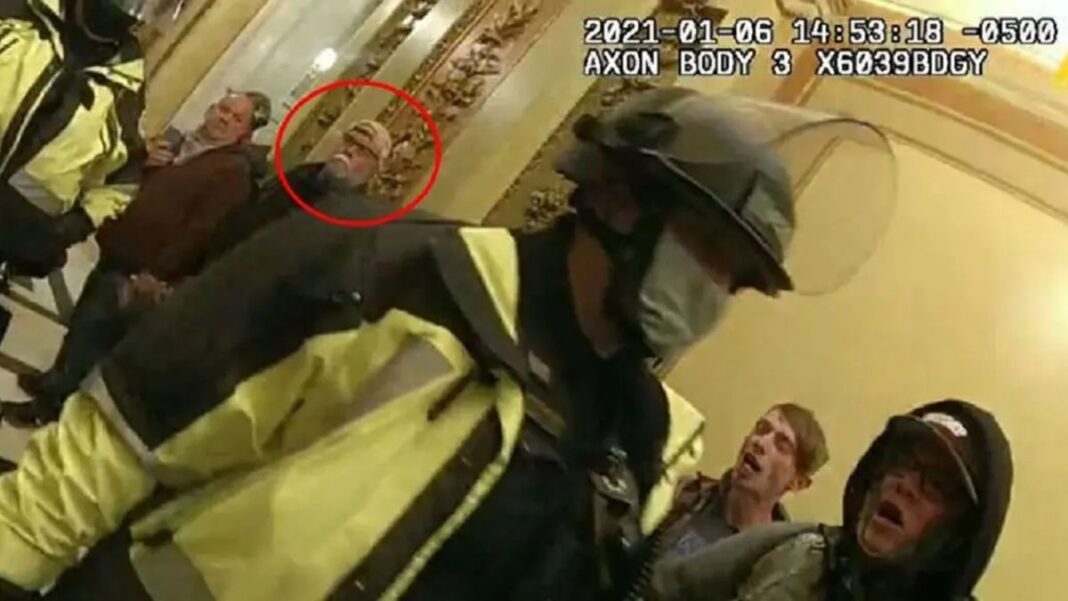Appeals court ruling comes in case of man who was inside the US Capitol for about 13 minutes.
People who entered the U.S. Capitol on Jan. 6, 2021, can be convicted of disorderly conduct even if they were “neither violent nor destructive,” a federal appeals court ruled on Friday, Jan. 5.
Russell Alford of Alabama was convicted in 2022 by a jury of four counts, including two of disorderly conduct.
But Mr. Alford entered the Capitol through an open door, was only inside the building for about 13 minutes, was silent, and did not engage in any violence or destruction, his lawyers and government officials agreed. That means the disorderly conduct convictions should be tossed, Mr. Alford’s public defenders said.
January 6 Footage From Russell Alford’s YouTube Channel
The U.S. Court of Appeals for the District of Columbia Circuit disagreed, favoring the government, which said the available evidence supported the convictions.
“The trial evidence indicated that, during Alford’s brief time within the Capitol, he was neither violent nor destructive,” U.S. Circuit Judge Karen LeCraft Henderson wrote in the unanimous ruling. “Nevertheless, we affirm his convictions because a jury could rationally find that his unauthorized presence in the Capitol as part of an unruly mob contributed to the disruption of the Congress’s electoral certification and jeopardized public safety.”
Judge Henderson, appointed by former President Ronald Reagan, was joined in the panel opinion by Circuit Judges Florence Pan, appointed by President Joe Biden, and Judith Rogers, appointed by former President Bill Clinton.
Lawyers for Mr. Alford did not respond to a request for comment.
Arguments
One of the counts in question says that a person violates the law if they “utter loud, threatening, or abusive language, or engage in disorderly or disruptive conduct, at any place in the grounds or in any of the Capitol buildings with the intent to impede, disrupt, or disturb” Congress.
The other makes it a violation when a person “knowingly, and with intent to impede or disrupt the orderly conduct of government business or official functions, engages in disorderly or disruptive conduct in, or within such proximity to, any restricted building or grounds.”
A request to dismiss the two counts was rejected by U.S. District Judge Tanya Chutkan, an appointee of former President Barack Obama. Judge Chutkan said that Mr. Alford’s “mere presence inside the Capitol disturbed the public peace or undermined public safety.”







